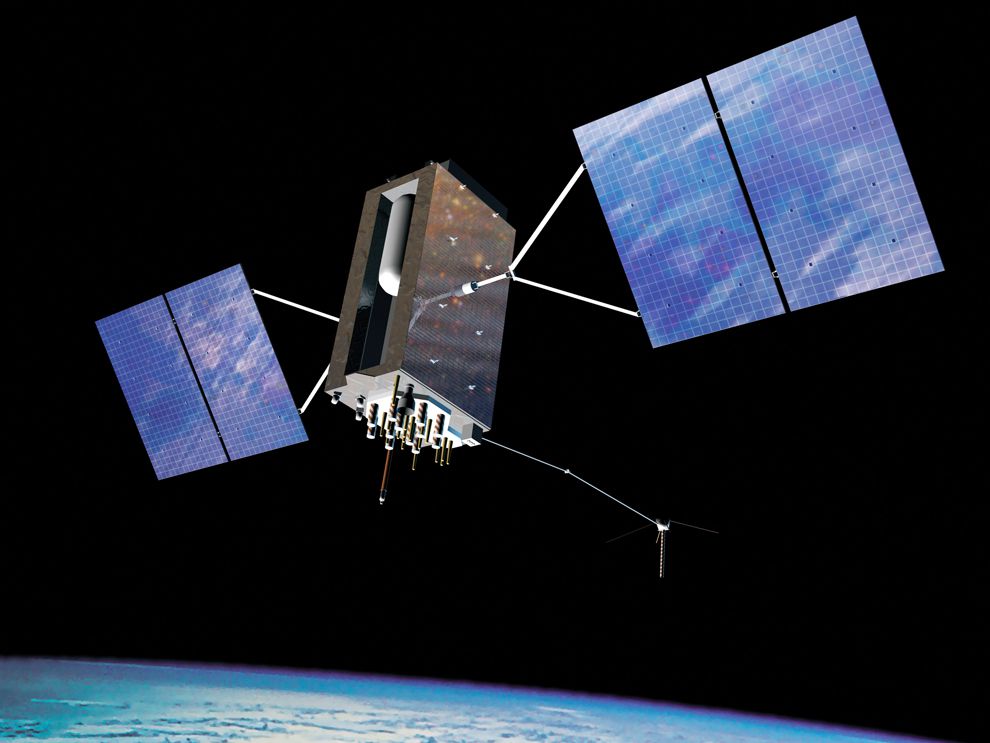Agile and DevSecOps Applied to Space Force GPS Modernization Program
The U.S. Space Force Space Systems Command (SSC) conducts operations in, from, and to space. The goals are to deter conflict, and if necessary, defeat aggression; deliver space combat power; and defend U.S. vital interests with allies and partners. One of the areas overseen by SSC is the spaceborne GPS assets of the Department of Defense (DoD), and SSC has embarked on a next generation GPS modernization program. SERC collaborators at the University of Southern California Information Sciences Institute (USC/ISI) are undertaking research and systems engineering (SE) analysis to support this effort and help improve these types of developments. Led by Dr. Michael Orosz at USC/ISI, the SERC team is helping to understand how mission engineering approaches will support the transition from “traditional” waterfall acquisition – which is largely document based and planned as sequential – to a more agile approach that utilizes DevSecOps (development, security, operations) processes.

Principal Investigator: Dr. Michael Orosz, Information Sciences Institute, University of Southern California
Though the SERC research task is specifically applicable to the implementation of next generation GPS technologies, the methods being developed have broader application. Dr. Orosz explains the key motivations of using these improved approaches: “The reason we are doing this is really to understand how best to insert agile and DevSecOps into the traditional DoD acquisition environment. This will allow the DoD to remain competitive, [and] develop and deliver systems as quickly as possible while ensuring the technologies are relevant. We’re also looking at how to use digital engineering in a methodical way to support the transition from paper-based, to static electronic-based, to actual model-based systems.”
Setting a precedent, the SERC research team is fully integrated with the government team. “We’re actually embedded in the environment and participate with the government in the day-to-day acquisition activities. This gives us firsthand knowledge and an opportunity to see what is and what is not working from both the contractor and government sides,” said Dr. Orosz.
Integrating with the government team and introducing agile approaches initially started with a “waterfall” project. Over time through involvement with a series of projects that exhibited similar complexity, mission scope and size, the USC/ISI team assisted the government in introducing agile and DevSecOps approaches into the acquisition process. With each succeeding project, the percentage of agile processes adopted compared to reliance on traditional waterfall processes increased.
“It is a nice way to see this transition unfold as agile becomes more … of an adopted approach to SE and systems development. It helps that roughly the same core team, CDAs and subcontractors are involved in all three of those programs. They’ve worked through the transition and are part of making this transition for Space Force occur. Familiarity with mission space, software, what worked and didn’t before, makes it easier to apply it to the next program,” said Orosz.
Dr. Orosz and team are also building a training curriculum for new personnel coming into the program designed to get them up to speed quickly in the mission space and development approach. The curriculum is a combination of foundational courses, with some focused more on the DoD acquisition cycle and how agile fits in that approach. The final part of the curriculum includes specific modules that only apply to the Space Force program.
When determining if an acquisition program is successful, there are usually three questions: did the current program deliver the capabilities that are needed, come in on budget and on time? Multiple GAO reports and Congressional findings over the last three decades have highlighted the challenges in achieving any and all of these objectives. Agile and DevSecOps are two ways that the DoD is trying to address these challenges. One of the advantages of these approaches is improved flexibility and learning, which allows teams to be more responsive to emerging challenges and improves the probability of program success. This is what the team is seeing in the GPS task.
Dr. Orosz would like to see more agile and DevSecOps adopted by the DoD in systems acquisition. “The end game is to make sure we stay ahead of our competitors. We’re involved in systems that are important to the warfighter. If we’re efficient and developing what’s needed, it’s relevant, [and] we’re maximizing those taxpayer dollars.”
Dr. Orosz and his team has also been capturing lessons learned during the research, which provide at least part of the solution for using agile and DevSecOps in acquisition. Sharing these insights is a critical step for the community and Dr. Orosz will be presenting findings and lessons learned on this research task at the upcoming Naval Postgraduate School (NPS) Acquisition Symposium.
Questions may be addressed to Principal Investigator: Dr. Michael Orosz.

